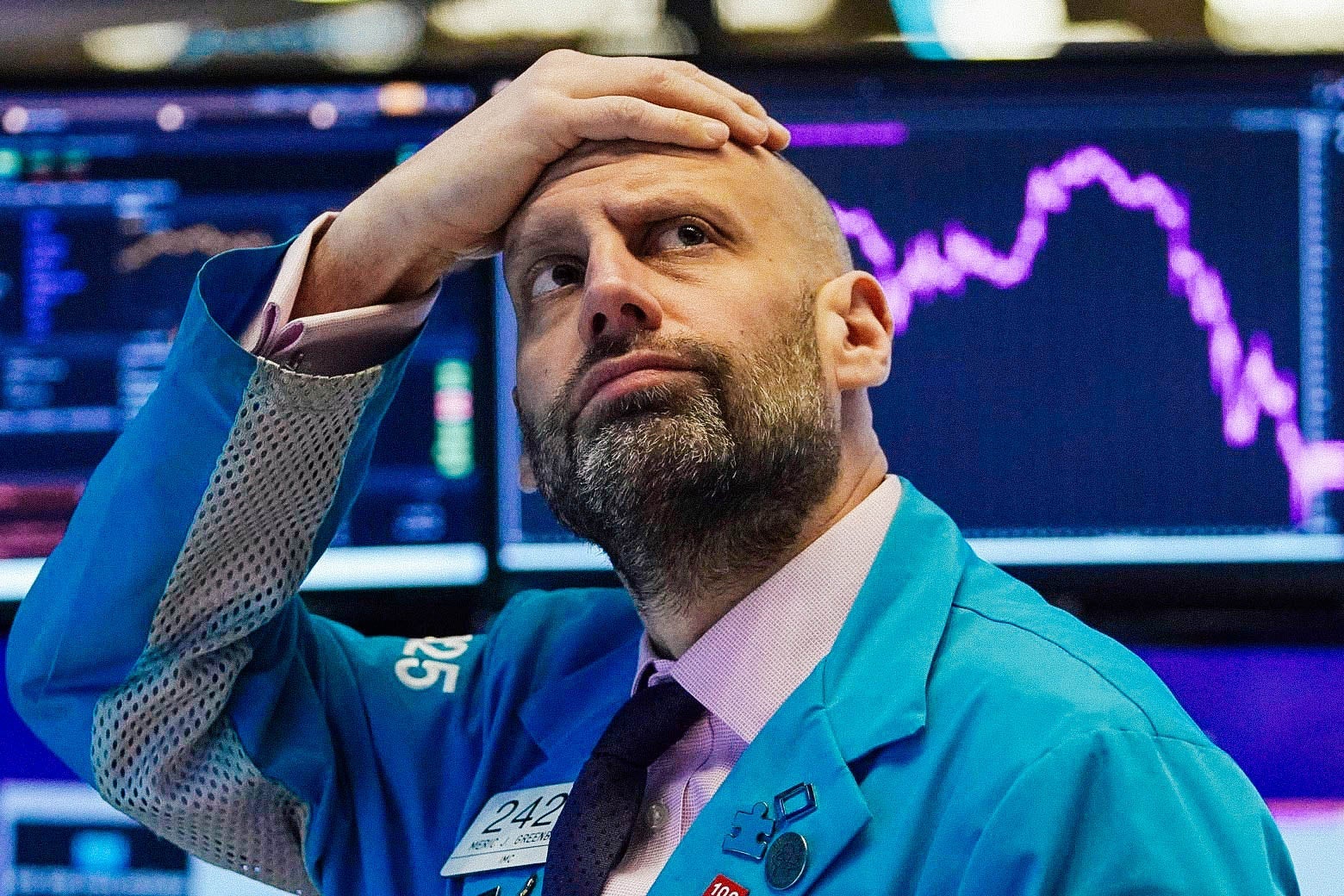Did you check your 401(k) today? If not, spare yourself the agony. Maybe for a while. The financial world resumed melting into goo on Monday thanks to the global coronavirus outbreak, with stocks falling so hard and fast in the morning that it triggered a rare 15-minute timeout on trading. By day’s end the S&P 500 collapsed by 7.6 percent—its worst showing since the financial crisis. The sell-off followed after Saudi Arabia’s leaders decided that now would be a good time to purposely crash the price of oil, a shocking and risky move likely to further destabilize a world economy that’s already wobbly thanks to the incipient pandemic.
How we got here is a bit complicated. But it all underlines a very simple point about why the coronavirus is seen as such a threat to the economy: People are worried that the outbreak will create a dangerous and unpredictable chain reaction that, once it starts, will be hard to contain, much like the illness itself.
The events that sparked Monday’s panic were the result of a clash between Saudi Arabia and Russia over what to do about oil prices, which have been tumbling ever since the number of coronavirus cases began to surge in China around January. Initially, the Saudis argued that its fellow OPEC members and their allies, including Russia, should respond by cutting production to prop up prices in the face of falling demand. But Moscow officially rejected that proposal on Friday.
So Saudi Arabia resorted to its Plan B. Over the weekend, the kingdom embarked on a surprise price war designed to cut into Russia’s sales, while promising to further flood the market by increasing its own production. It’s a move we’ve seen before from the country, which waged a brutal price war in 2014 and 2015 that eventually forced Russia to start coordinating its production with OPEC. But as of now, the Russians have responded by vowing to pump more of their own oil. We appear to be entering a standoff.
As a result, oil prices collapsed on Monday. By late afternoon, global crude was down about 24 percent. “The situation we are witnessing today seems to have no equal in oil market history,” International Energy Agency executive director Fatih Birol said. “A combination of a massive supply overhang and a significant demand shock at the same time.”
Falling oil prices can both help and hurt an economy. They are generally bad for energy companies and countries that rely on revenue from drilling. But they also lead to lower gas prices, which is a boon to consumers and many businesses. Investors, meanwhile, tend to see them as a sign of trouble, since declining demand for energy is a sign that growth is cooling off.
But on Monday, investors reacted to the sheer, cataclysmic price collapse, and the very real threat that it could wipe out a good chunk of the U.S. fracking industry. Drilling in shale is an expensive process that isn’t particularly profitable at the rock bottom prices the market is now seeing. And indeed, energy stocks got absolutely smashed Monday.
A U.S. oil bust would hurt the economy in at least a couple of ways. First, it will deal a direct blow to states like North Dakota and Texas where drilling is a major industry; we’re probably going to see a lot of laid-off rig workers in the coming months. Second, it’s likely to chill U.S. business investment, which has come to depend heavily on the oil and gas industry. As drillers mothball their operations, they won’t be spending on rigs, trucks, or other heavy equipment, which also means fewer factory orders.
But lurking underneath those issues are potential landmines in the debt markets. Risky energy companies have borrowed an enormous amount of money in recent years by issuing junk bonds to investors looking for high returns at a time of low interest rates. Many people have worried what would happen if those companies started to go bankrupt and default on their debt. Now, we might be about to find out; high-yield bond prices are falling rapidly, signaling that investors are suddenly very afraid of what’s coming.
Even if drillers do start to default en masse, it’s unlikely that we would see a complete collapse of the financial markets the way we did in 2008. But it would almost certainly lead investors to shy away from the riskier corners of the bond markets and crimp the flow of credit through the economy—all of which could help bring about a recession or make one worse.
Aside from Saudi Arabia’s decision to launch a price war, none of these issues really comes as a surprise. Economists, investors, and journalists have worried for a while that if oil fell as a result of the coronavirus outbreak, it could wreak havoc in the bond markets. But the kingdom’s move started knocking over the dominoes more suddenly than most people expected—and brought us a little closer to seeing a worst-case scenario play out.
So this is where we are. A virus probably jumped from bats (or maybe pangolins) into humans in China, then spread to the world, which caused a geopolitical feud over oil between Saudi Arabia and Russia that cratered crude prices. And as a result, people are now very worried about the junk bond market and the global economy. As the Washington Post’s Philip Bump put it a few days back: “Somewhere, a butterfly jealously flaps its wings.”
